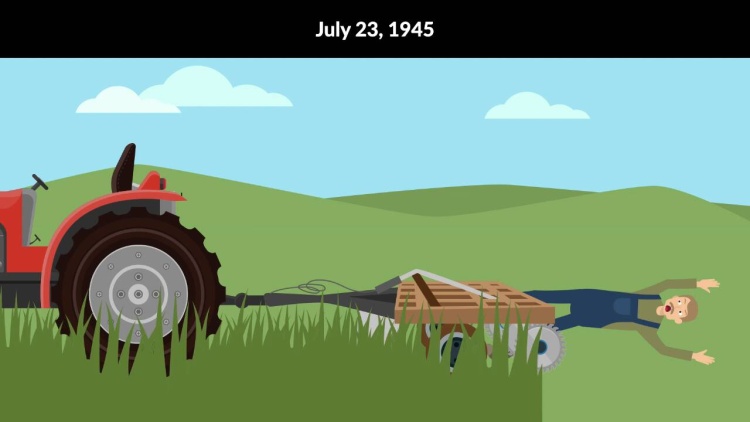Rogers v. Board of Road Com'rs for Kent County
Michigan Supreme Court
30 N.W.2d 358 (1947)
- Written by Michael Beverly, JD
Facts
The Board of Road Commissioners for Kent County (Board) (defendant) had a license agreement to place a snow fence on land owned by Rogers’s (plaintiff) husband. The Board set up the snow fence pursuant to the license agreement. Under the license agreement, the fence, including the anchor posts, would be removed by the Board at the end of the winter season. At the end of one winter season the Board removed the snow fence but did not remove a steel anchor post that protruded six to eight inches above the ground. The grass in the area where the post was located grew to a height that completely hid the post from one’s view. On one particular day in July, while Rogers’s husband was mowing an area where the snow fence had been located, the mowing bar on her husband’s tractor struck the steel post that was hidden from view. As a result of the impact, Rogers’ husband was thrown from the seat of the tractor. Rogers’ husband died from the accident. Rogers sued the Board for trespass and negligence. The court dismissed Rogers’ trespass claim finding that her entire claim was actually a claim based on negligence and not trespass. The court subsequently dismissed Rogers’ negligence claim based on the Board’s defense of governmental immunity. Rogers appealed to the Supreme Court of Michigan.
Rule of Law
Issue
Holding and Reasoning (Reid, J.)
What to do next…
Here's why 907,000 law students have relied on our case briefs:
- Written by law professors and practitioners, not other law students. 47,100 briefs, keyed to 996 casebooks. Top-notch customer support.
- The right amount of information, includes the facts, issues, rule of law, holding and reasoning, and any concurrences and dissents.
- Access in your classes, works on your mobile and tablet. Massive library of related video lessons and high quality multiple-choice questions.
- Easy to use, uniform format for every case brief. Written in plain English, not in legalese. Our briefs summarize and simplify; they don’t just repeat the court’s language.





